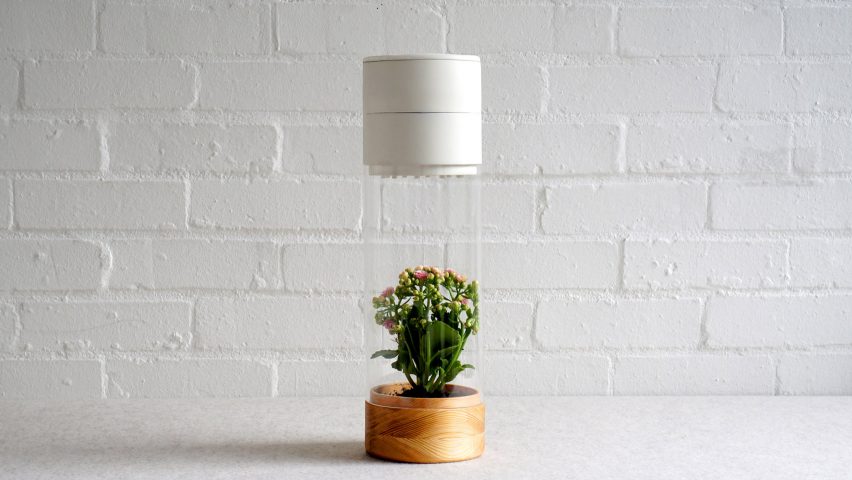This connected plant pot designed by Royal College of Art graduate Jen-Hsien Chiu feeds or starves a plant depending on its user's behaviour.
Phabit – which Chiu developed as part of the Royal College of Art's (RCA) Innovation Design Engineering programme – is designed to help people develop better habits. It was prompted by his own struggles trying to go to the gym regularly.
Phabit includes an app with a personality quiz, which asks users to respond to different scenarios and analyses their reactions. The app then divides the user into one of four groups – Upholder, Obliger, Questioner or Rebel – and identifies the specific challenges each type faces when trying to establish regular habits.
Phabit can then be used to monitor behaviour, using phone data and geofencing – in which GPS is used to identify when someone enters or leaves a specific area. This allows the app to tell if a user is at home or in the gym, and how much time is being spent at either place.
Like many fitness-tracking apps, Phabit also connects to the iPhone's own health app to access step counts. Where it differs from other fitness trackers is that the Phabit app also connects to a test tube-like device with a plant inside.
The plant is only watered and given sunlight if its owner keeps up their good habits; otherwise, it's left to shrivel and die.
"What I found was that a non-living object was too boring for users," Chiu told Dezeen. "After one week users can usually predict what will happen and lose interest. On the other hand, something living was too aggressive for most people. If they failed they would feel too guilty about it to build a habit."
"The plant is an interesting thing," he continued. "To humans, it lives in a state that appears to be in between a non-living and living thing. After living with the plant for a while, users see it as a pet."
Chiu used wildflowers for his Phabit experiments, choosing them for their resilience; it means they can survive longer periods without water while users are still getting into good habits.
This year's Royal College of Art of Art graduate exhibition ran from 24 June to 2 July. It included everything from a furniture system designed to combat waste to a set of jelly-like silicone plates that add a new dimension to the dining experience.

